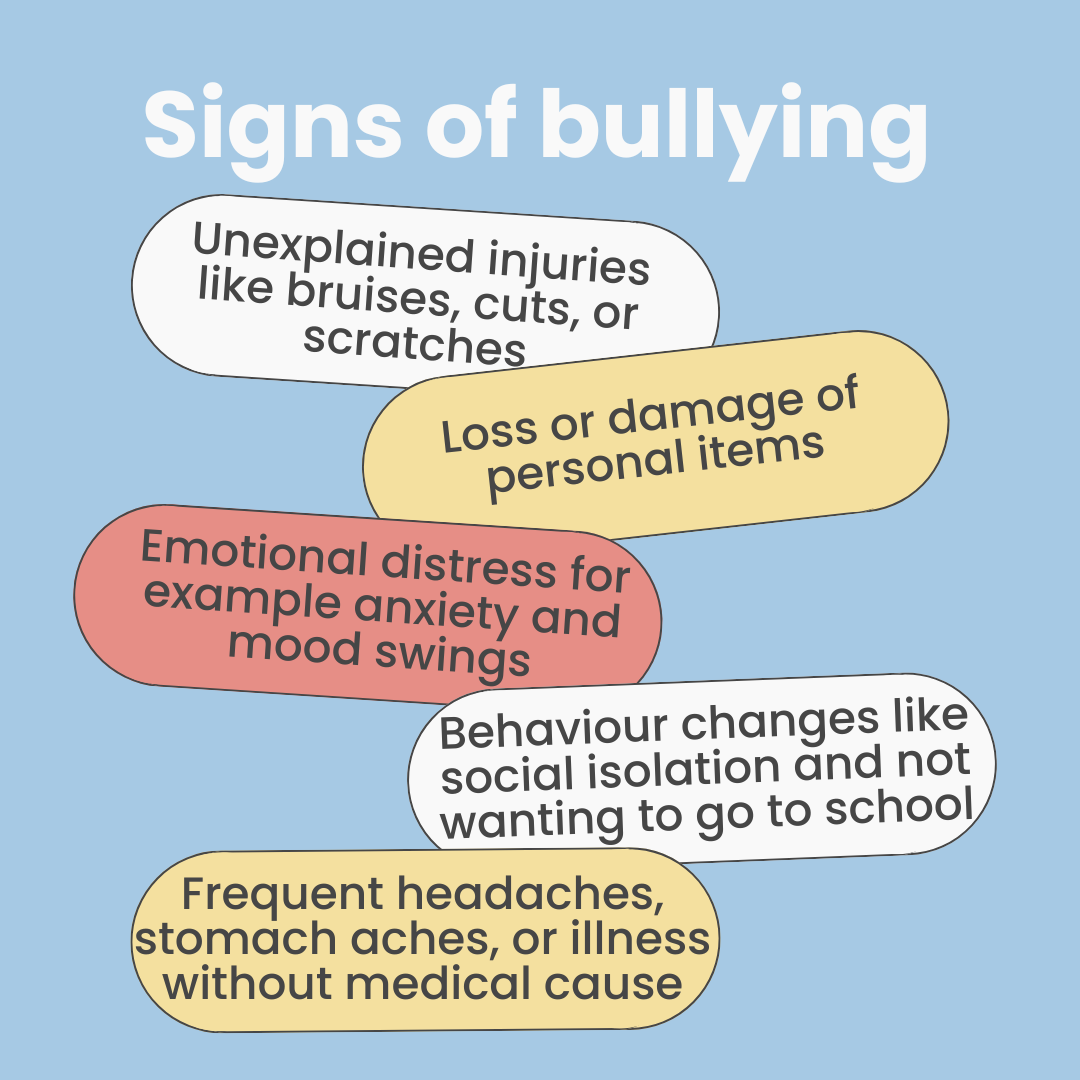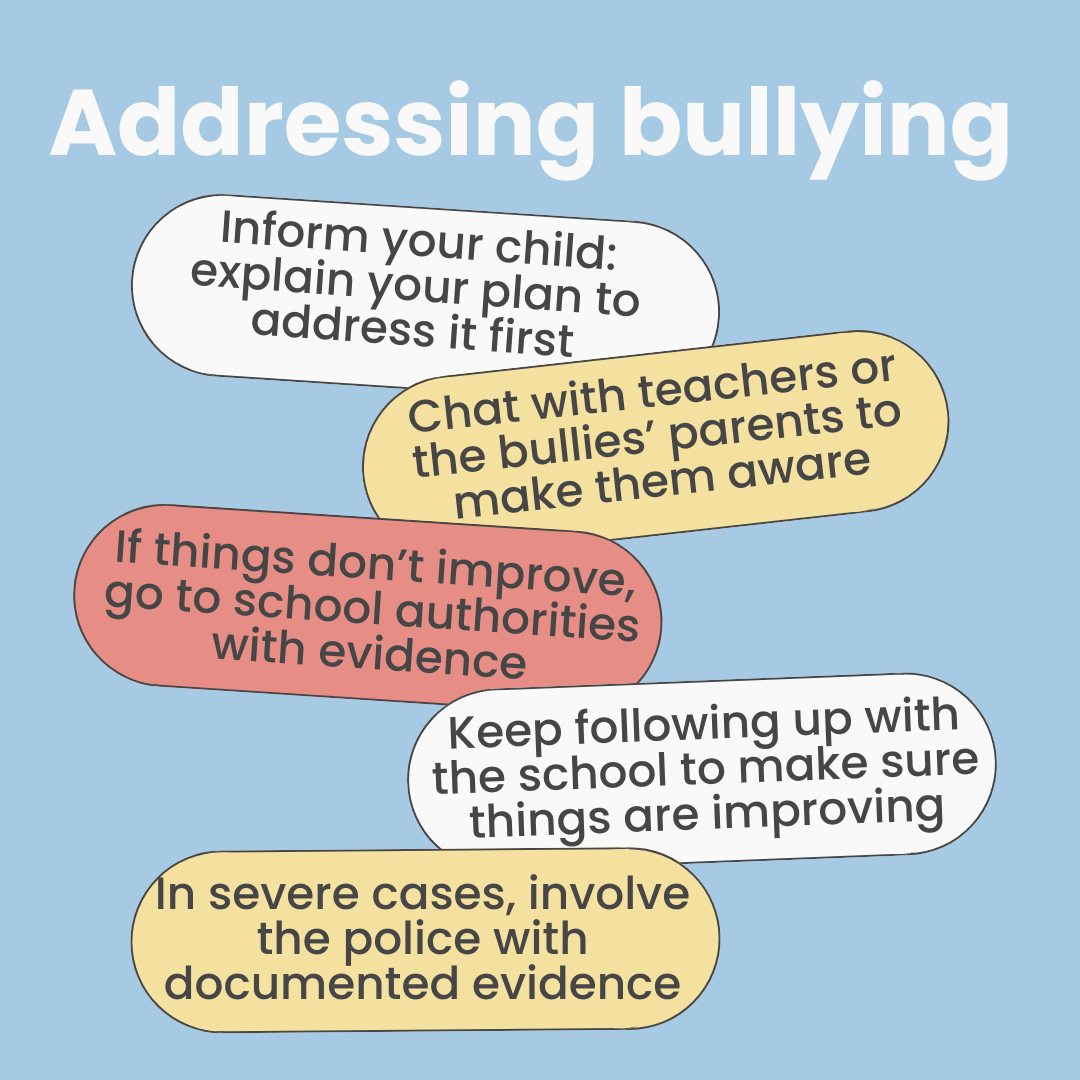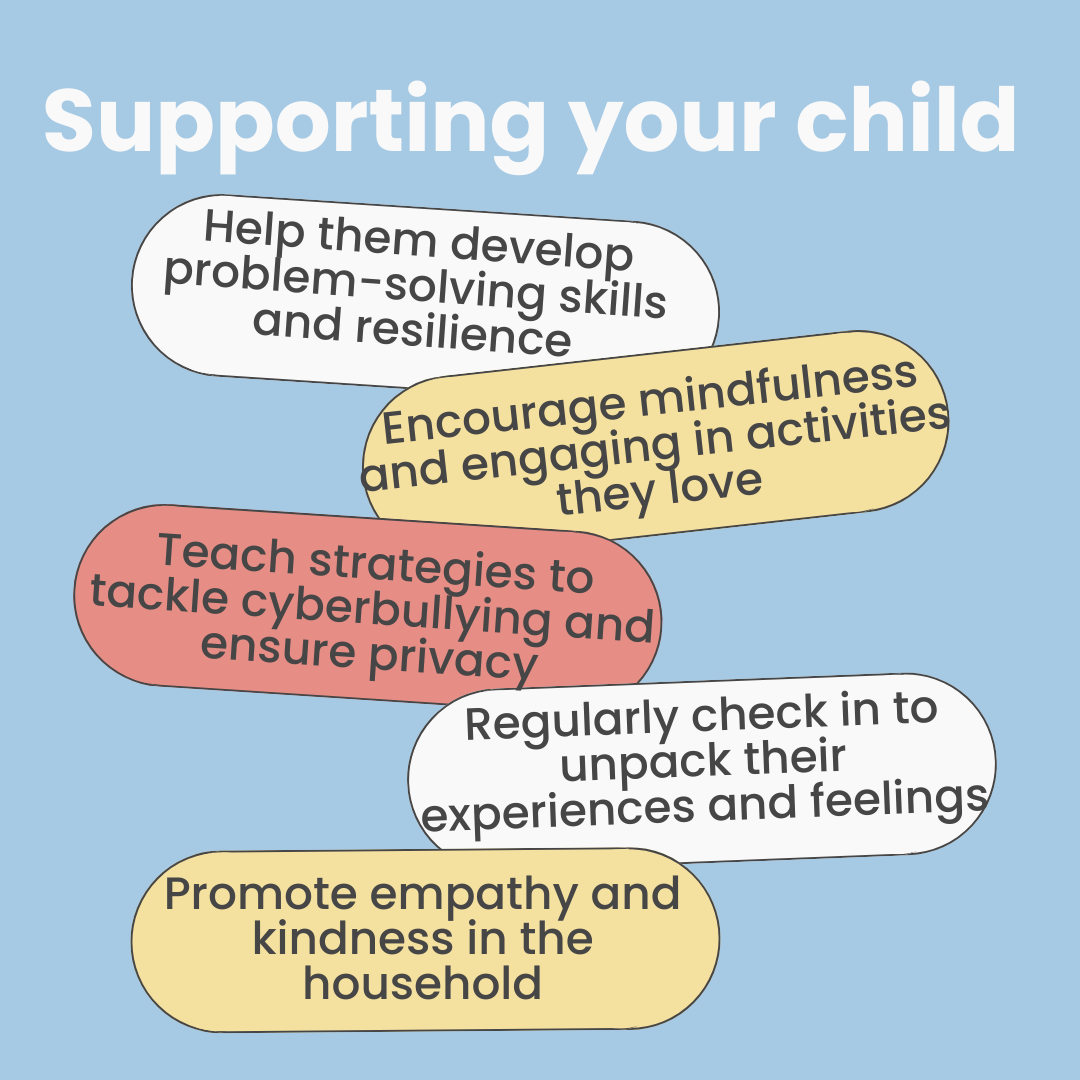
Steps to take if your teen is being bullied
Help your teen deal with bullying

Quick summary
- It can be devastating when we think or know our teen is being bullied, but there are practical steps you can take to support them
- Addressing bullying involves creating a safe space for open discussions so you know exactly what's going on, documenting incidents, collaborating with schools, and escalating to the police if necessary
- You can also help your teen teaching them ways to copy, encouraging self-care and explaining online safety – what's key is making sure that home remains a safe space

Bullying is a distressing and unfortunately all-too-common experience that can be really tough on a teen’s emotional and psychological wellbeing.
Bullying can happen in many forms, including physical, verbal, and cyberbullying – which is growing more common where so many more young people have access to smartphones and social media.
We've learnt that 27% of children between the ages of 8-15 who use some form of social media have experienced cyberbullying.
From speaking to lots of parents ourselves, we know how much you all want to identify the signs that your teen may be going through this to be able to support them effectively during this time.
Signs of bullying include…
- Unexplained physical injuries – e.g. bruises, cuts, or scratches
- Missing or damaged personal property
- Emotional distress – this can range from increased anxiety, low mood and mood swings all the way to engagement in self-destructive behaviours such as self-harm
- Changes in behaviour such as social isolation, declining academic performance, or reluctance to attend school
- Physical symptoms like frequent complaints of headaches, stomachaches, or general illness with no obvious medical cause
- Changes in eating or sleeping habits
luna's also got a deep dive into these signs of bullying here!

Steps to take if your teen is being bullied
1. Listen and support
Create a safe, calm space for your teen to talk about their experiences, letting them lead the conversation.
Listen without judgement, empathise, and validate their feelings.
2. Remain calm
It can be devastating to discover your teen is going through an experience such as this.
Despite how you may be feeling, try to listen calmly and objectively. Avoid panicking or fretting to them.
Instead, offer to work collaboratively with them to find ways to tackle the situation so that they feel a sense of their own agency.
3. Gather information
Encourage your teen to share specific details (like who, what, when, where) about bullying incidents and keep a record.
This could include...
- Screenshots of cyberbullying
- Photos of injuries
- Written accounts of verbal harassment
- Recordings of what happened on their phone
With all of this in hand, you can then address the problem.
How to address the bullying
1. Make sure your teen knows your plan
If things escalate to the point where more official action is required, make sure your teen is aware of when and why you are taking this step to avoid losing their trust.
2. Chat with teachers or parents
If this is happening at school, have informal conversations with teachers to find out more about what is going on and possibly ask them to keep an eye on the situation.
In some cases this may alert the teacher to nip an emerging situation in the bud before it has the chance to evolve.
If this is cyberbullying but your teen knows the person you can get in touch with their parent to find a solution.
3. Contact school authorities
Arrange a meeting with their teachers, headteacher, or pastoral care team to discuss the situation.
At this stage it's useful to present documented evidence to back up the validity of your concerns.
Make sure to also inquire about anti-bullying policies and how they are to be implemented for the wellbeing of your teen.
Make sure to document everything discussed at the meeting for your records.
4. Follow up
After the initial meeting, maintain regular communication with the school to ensure they are monitoring the situation and taking action as required.
5. Legal escalation
In severe cases of bullying involving criminal acts such as assault, harassment, or theft, it may be necessary to involve the police.
Document all evidence and be prepared to file a report if the situation does not improve following school intervention.

Supporting your teen after they've faced bullying
1. Teach coping strategies
Help your teen develop problem-solving skills and resilience by trialling strategies to cope with bullying, such as...
- Not reacting to the bully
- Being assertive
- Surrounding themselves with friends
- Seeking help from a trusted adult
Know that each case of bullying is different, and it may take a few different approaches before any change is seen.
2. Nurture self-care skills
Encouraging practices such as mindfulness and relaxation techniques can improve their general wellbeing and capacity to handle the difficult emotions that are triggered by bullying.
In addition, make sure your teen continues to engage in the activities they love and takes part in social opportunities that allow them to connect with friends that have a positive impact on their self-esteem.
3. Promote online safety
If your teen is experiencing cyberbullying, ensure they are equipped with strategies on how to tackle it, such as...
- Blocking or reporting individuals
- Keeping personal information private
- Taking breaks from technology
It can also be useful to ask your teen to add you on social media platforms to give you limited access to monitor the situation.
Just make sure not to overstep when given this privilege e.g. commenting too much on their posts if they aren’t comfortable. This risks them making their account private or making secret accounts.
4. Check in with them
Try to regularly speak with your teen to give them a chance to unpack their day-to-day experiences and feelings.
This will help you to maintain open communication with your teen and stay in tune with how they may be coping
5. Make home a safe space
Promote positive traits such as empathy and kindness amongst everyone in the household.
This makes sure that your teen has a space where they can relax and mentally recuperate following especially hard days.

Really hope this has helped you!
Bullying is always horrible to experience, but taking proactive steps to protect your teen's wellbeing can make a significant difference.
By:
- Being there to support and work with them
- Taking charge in dealing with the school where required
- Seeking additional resources such as professional help when needed
you can help your teen navigate this difficult time whilst developing their own resilience.
How we created this article:
luna's team of experts comprises GPs, Dermatologists, Safeguarding Leads and Junior Doctors as well as Medical Students with specialised interests in paediatric care, mental health and gynaecology. All articles are created by experts, and reviewed by a member of luna's senior review team.
Sources:
Stop Bullying "Warning signs" | Accessed 26.03.25
https://www.stopbullying.gov/bullying/warning-signsKids Health "Cyberbullying" | Accessed 26.03.25
https://kidshealth.org/en/parents/cyberbullying.htmlEnd Cyberbullying "What can you do to help prevent cyberbullying?" | Accessed 26.03.25
https://www.endcyberbullying.net/preventing-cyberbullyingNSPCC "Dealing with bullying" | Accessed 26.03.25
https://www.nspcc.org.uk/keeping-children-safe/support-for-parents/dealing-with-bullying/Reach Out "5 ways to look after yourself after being bullied" | Accessed 26.03.25
https://au.reachout.com/bullying/about-bullying/5-ways-to-look-after-yourselfKids Health "Bullies" | Accessed 26.03.25
https://kidshealth.org/en/kids/bullies.htmlExplore Learning "Cyberbullying facts and statistics" | Accessed 26.03.25
https://www.explorelearning.co.uk/free-resources/cyberbullying-facts-and-statistics/Find out about trends when your teen does
Sign up to our parent newsletter for emails on the latest teen trends, insights into our luna community and to keep up to date
By signing up, you are agreeing that we can use your email address to market to you. You can unsubscribe from marketing emails at any time by using the link in our emails. For more information, please review our privacy statement.